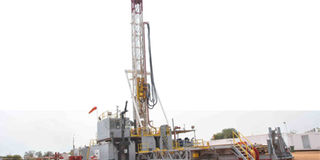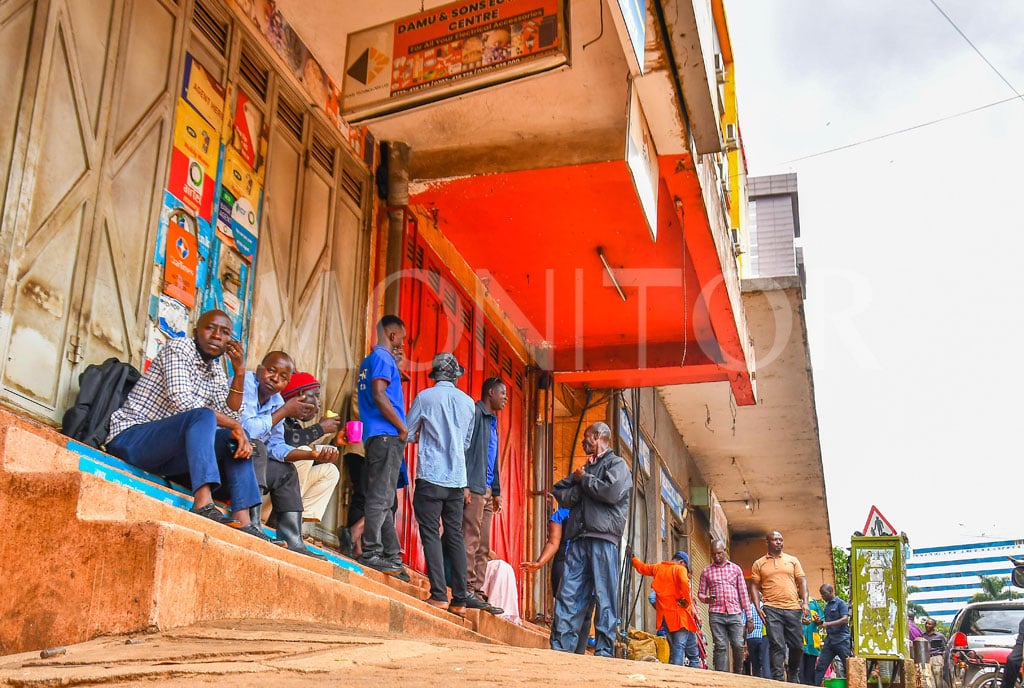Oil boom: conservationists raise eyebrows over threats to nature

What you need to know:
There have been mixed feelings since the discovery of oil in the Albertine region and the environmentalists have their share of great worry about the animals, people and soil in this region.
It's time to celebrate Uganda’s oil and gas exploration in the oil fields of Mputa, Waraga, Nzizi and KingFisher? Oil is feared to be a curse to the environment much as petrol dollars are a blessing.
Environmentalists have raised eyebrows about the possibility of the extraction being carried out in national parks in the Albertine rift valley without disrupting the animals’ behaviour. This is because of the vibrations made during drilling and movement of vehicles in the park.
The situation is further worsened with the strange smell from the crude oil wastes kept at the wells making them worry about the wastes penetrating the ground to affect the soils.
The National Association of Professional Environmentalists (NAPE) recently released a report tasking government to release its environment plan in the Albertine Graben. The government is yet to take heed.
Allan Kalangi, a researcher at NAPE, says the flaring carried out to test the wells and the seismic studies in the lake may have far reaching impact if not handled with care.
“Oil drilling should be done transparently with all Ugandans on board to avert it from being a curse like in some West African countries like Nigeria,” he says. Paul Semambo, an environmentalist, notes that mining oil below the earth crust could also shift the rocks and cause earthquakes, advising oil mining companies to take note.
However, Isaac Ntugo, an oil and gas inspector monitor at the National Environment Management Authority (NEMA), says they have been moving with oil mining companies and no area was explored without having an environment impact assessment approved by NEMA.
“Substances from the sieved oil apparently are being gathered in well-built waste dumping places as we rethink measures of disposing them off properly,” he notes.
Ntugo shows that so far there are disposable sites at Pundu in Rukungiri, Kisinja in Kaisotonya, Buliisa in Buliisa District, Bugungu, Ngara and Kigongole.
He narrates that solid waste liquid is separated from sand and clay where the liquid is containerised and the solids are temporarily kept in the disposable pits pending proper measures put by NEMA to have them dumped properly.
About 6,000 barrows of oil have since been drilled and containerised awaiting the refinery yet to be set up.
Bukenya Matovu, head of communications at the Ministry of Energy says they banned flaring in Uganda’s oil wells after discovering its effect on the environment.
“Oil guidelines for companies to follow when carrying out activities in National Parks have been drafted, says Lillian Nsubuga, UWA spokesperson.
She continues: “While in the park, for example, there is no driving at speed beyond 40km and oil pads cannot be put in highly ecological areas like breeding areas, migratory places among others.”
Nsubuga adds that oil companies have been strongly warned against digging pipeways outside the already constructed roads in the park because it would destabilise the movement of animals which may attack the workers.
UWA has also banned parking yards, washing bays, base camps inside the park because they may either cause people-animal conflict or antagonise animal habitats in the park.
Nsubuga says wastes from oil should strictly be carried out of the park where NEMA will be monitoring it to ensure its proper disposal.
UWA wants all installations by oil companies like oil heads painted green, not to interfere with animals already used to seeing the green environment and reduce oil activities in highly active tourism months like June-August and November-January.
However, the UWA spokesperson says the rules are subject to review by the wild life body’s board that is yet to be set up.
So far, 10 wells have been discovered in Queen Elizabeth National Park, Murchison falls National Park, Kabwoya wildlife reserve, Bugungu Wildlife community reserve, Kaisotonya community wildlife reserve. There is hope of finding oil in Semiliki national Game Park.
Dozith Abeinomugisha, the acting principal geologist in the Ministry of Energy and Development, says Tullow oil has discovered 12 other oil wells in Kasotonya, Bulisa, two (the dry wells) of which are going to be relinquished back to government.
He says Tullow also has set up various infrastructure to be used in the community and have promised employment to over 10,000 locals.
Oil drilling is expected to start in 2015 after setting up an oil refinery in Kabale to produce at least 20,000 barrows of oil per day.




